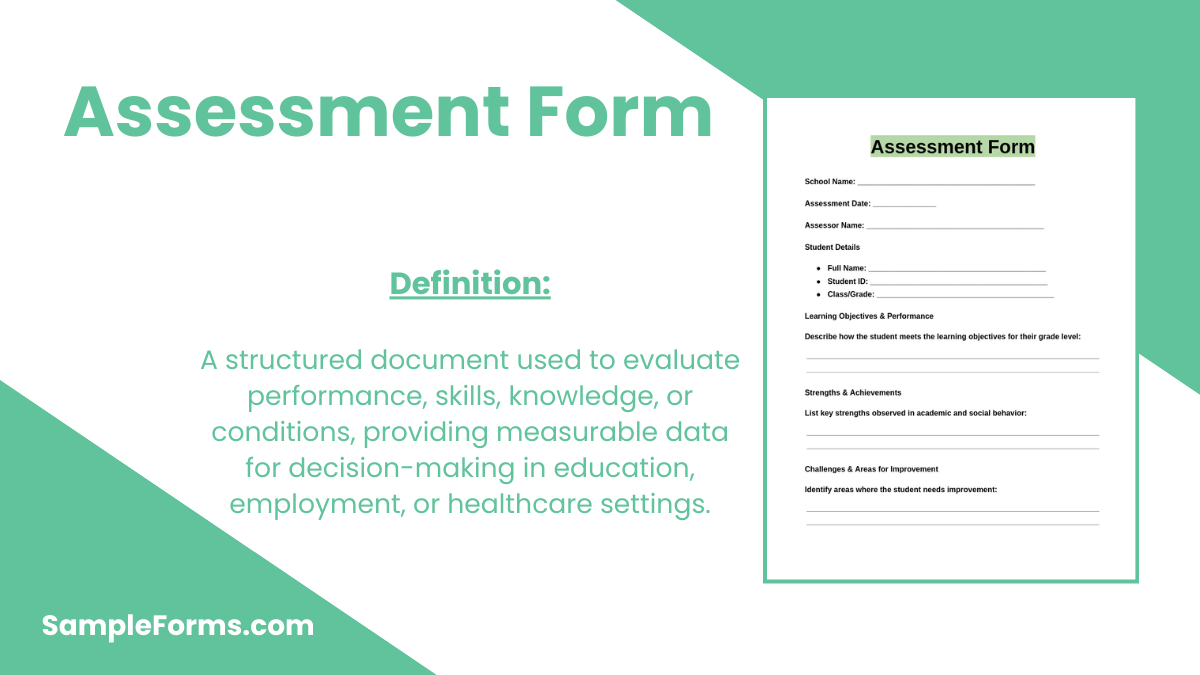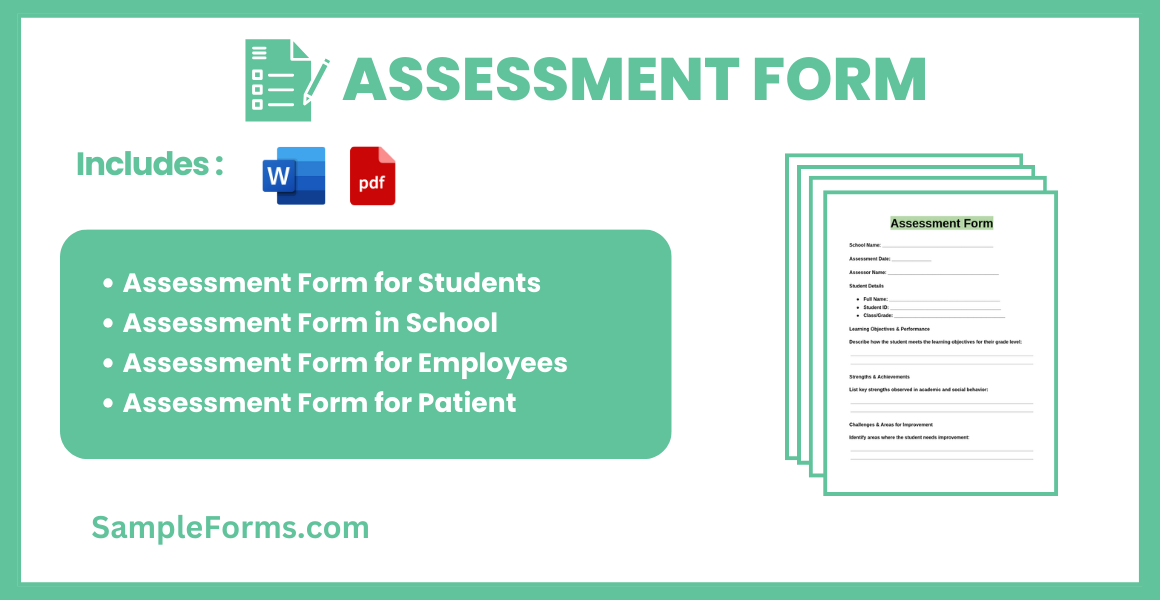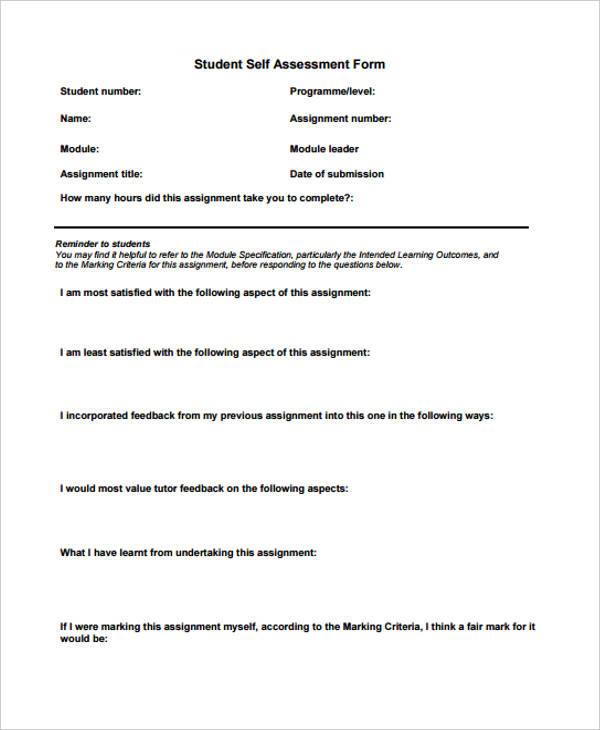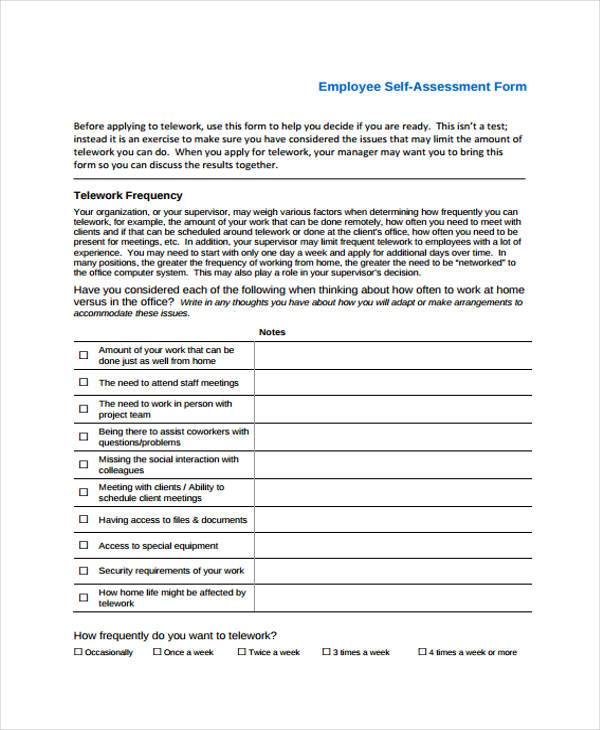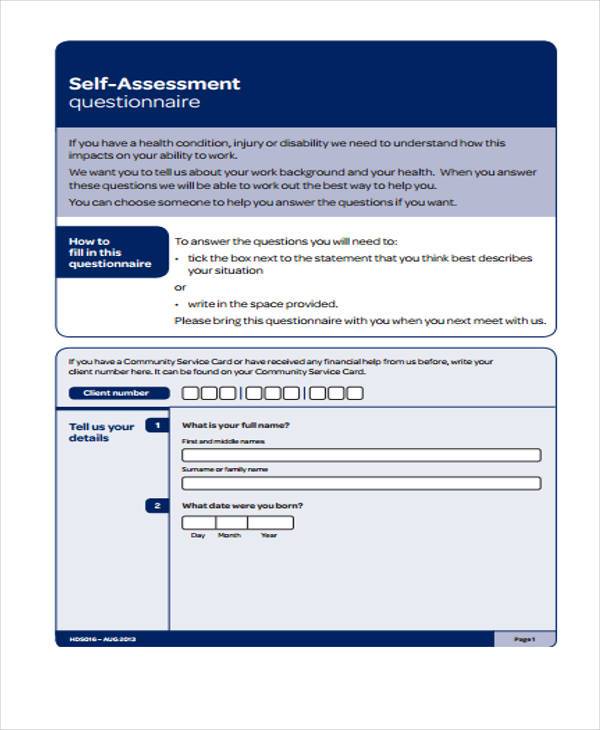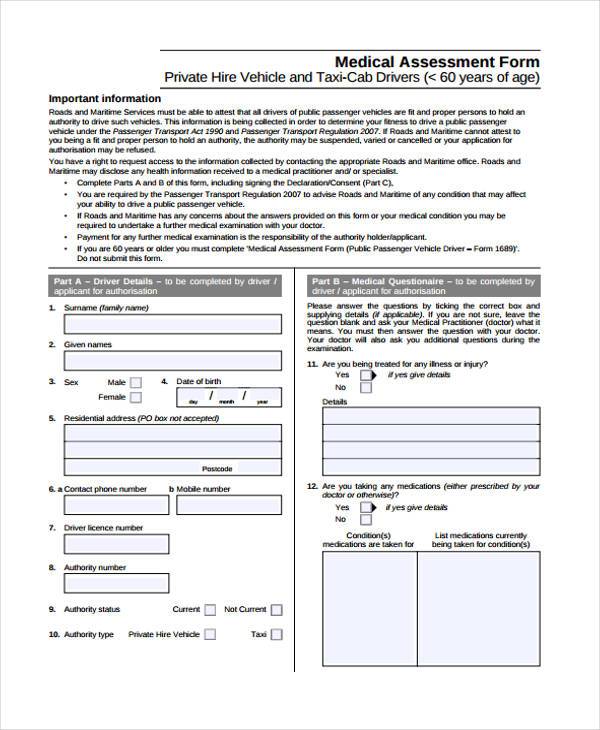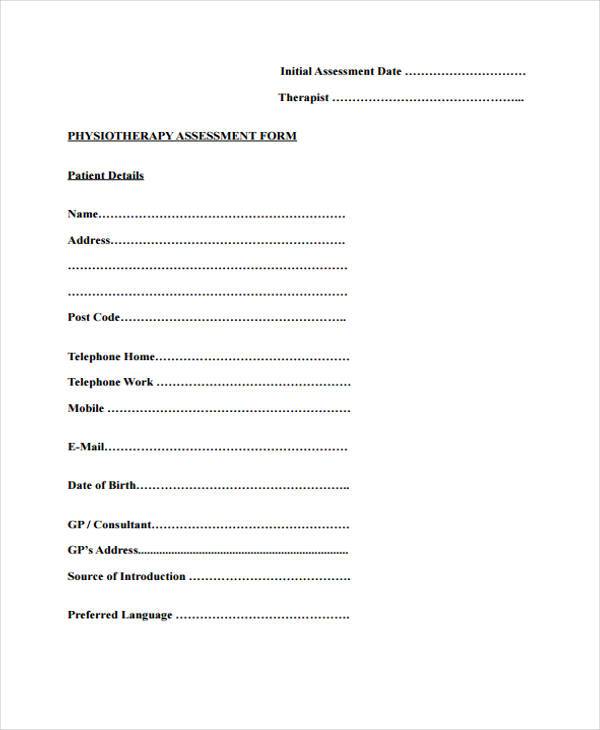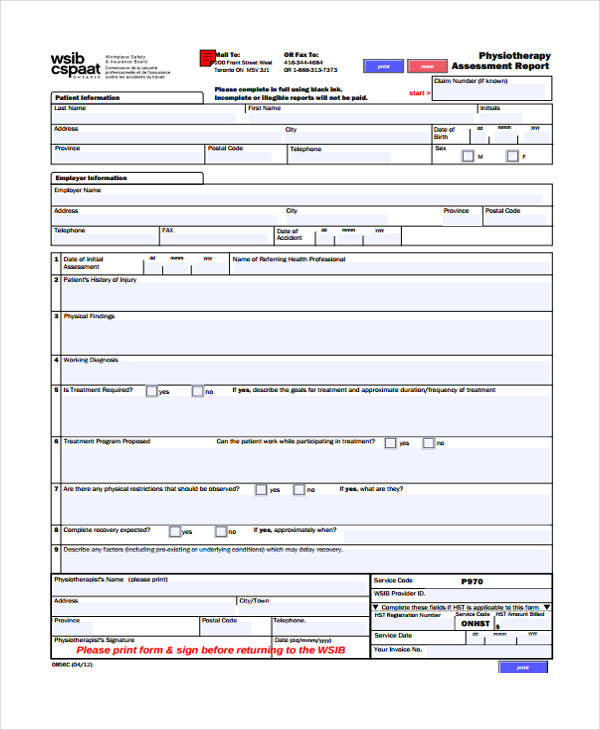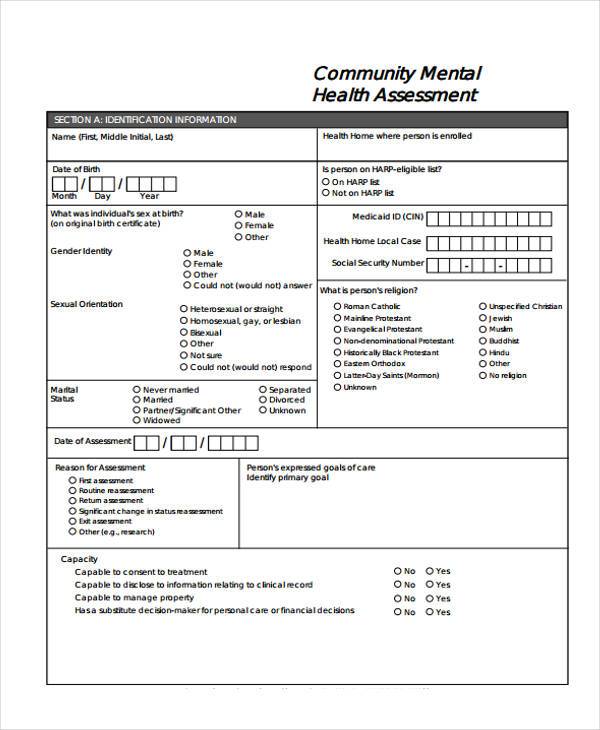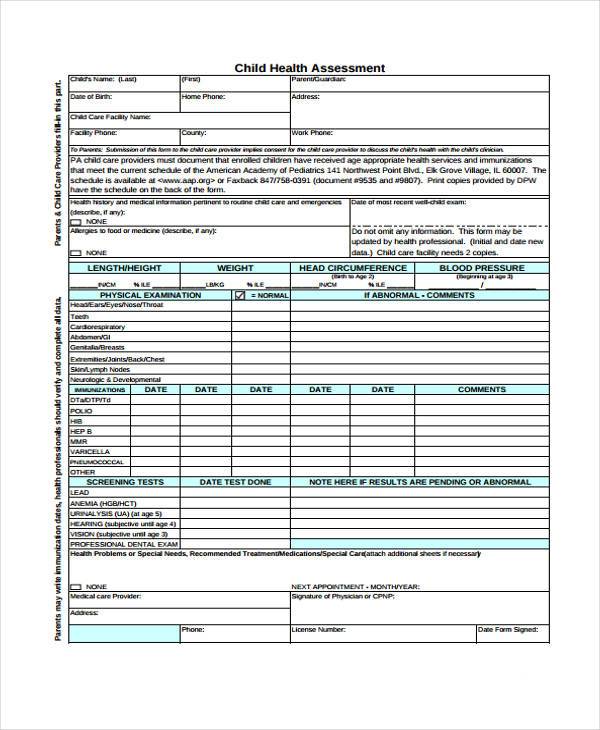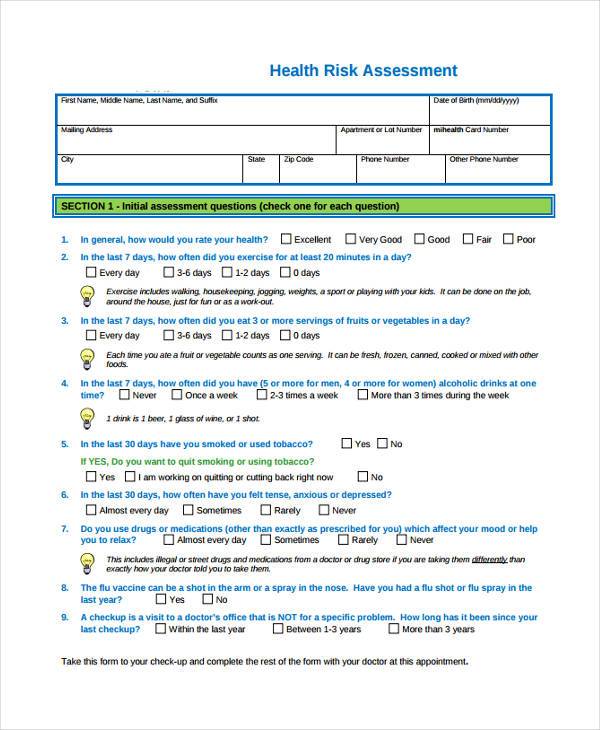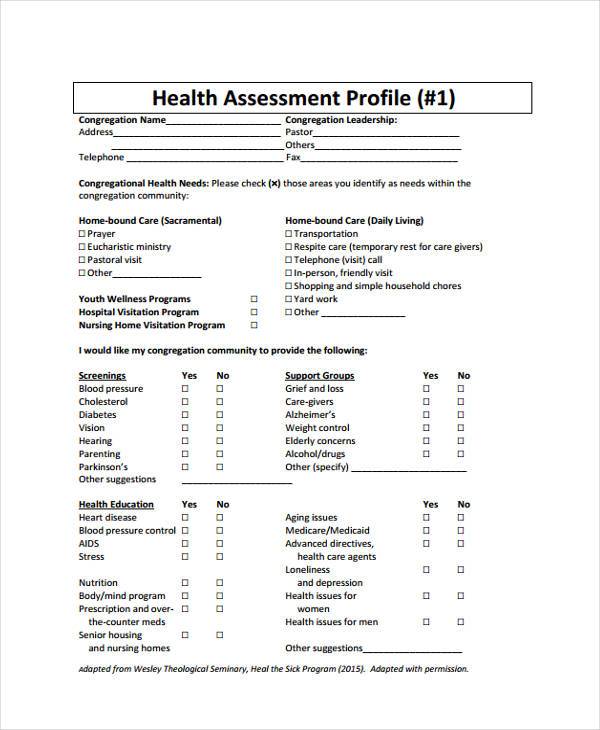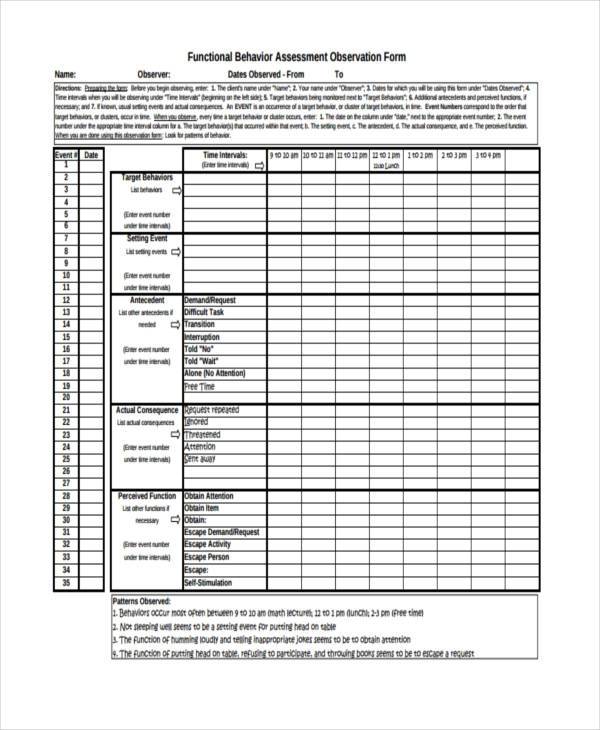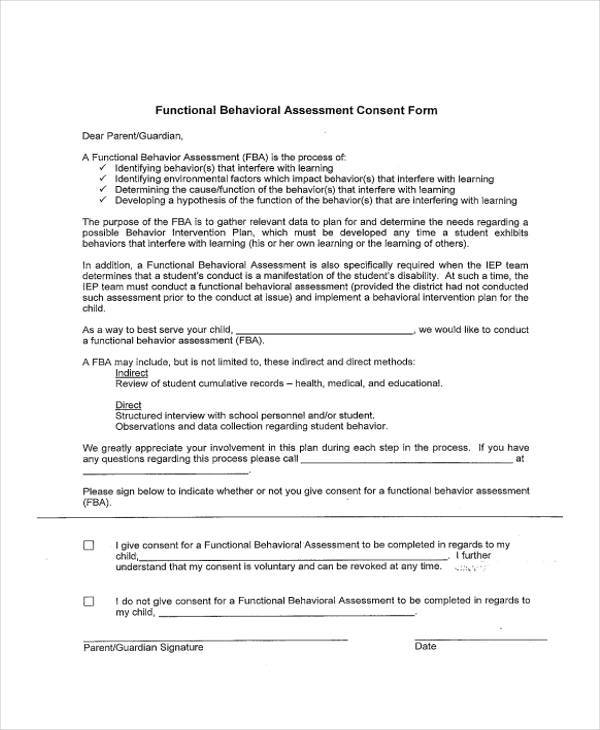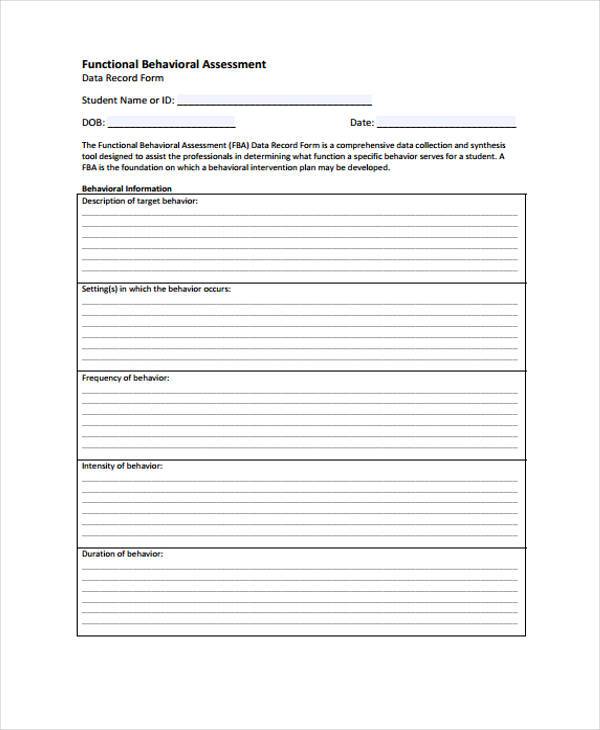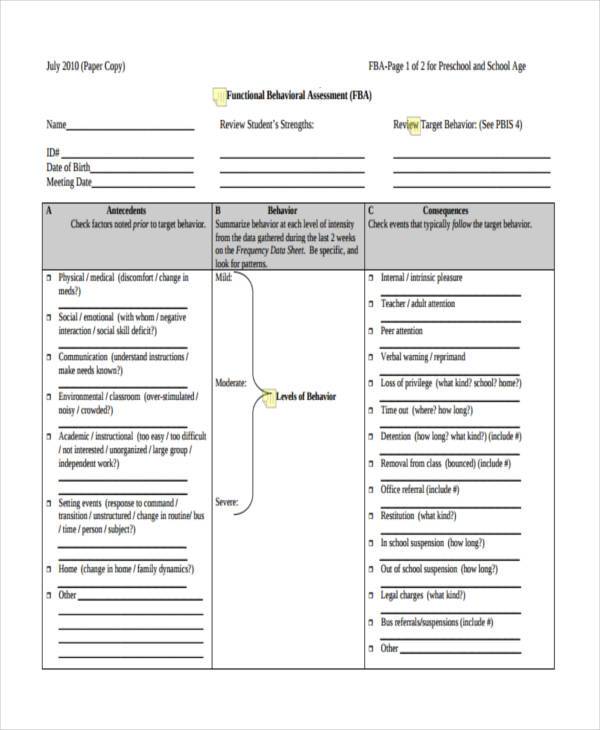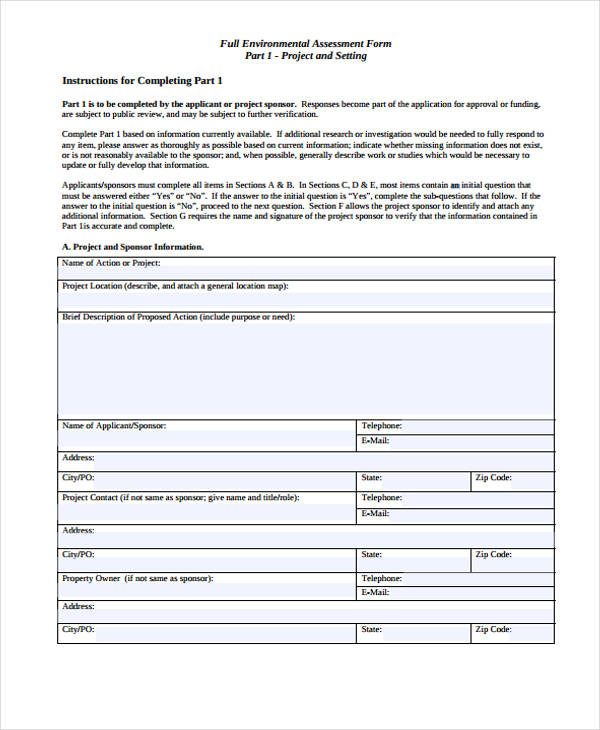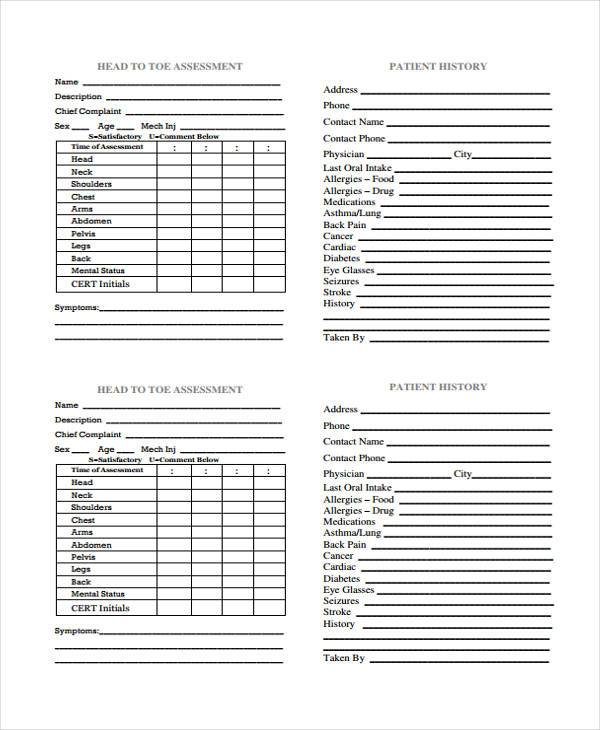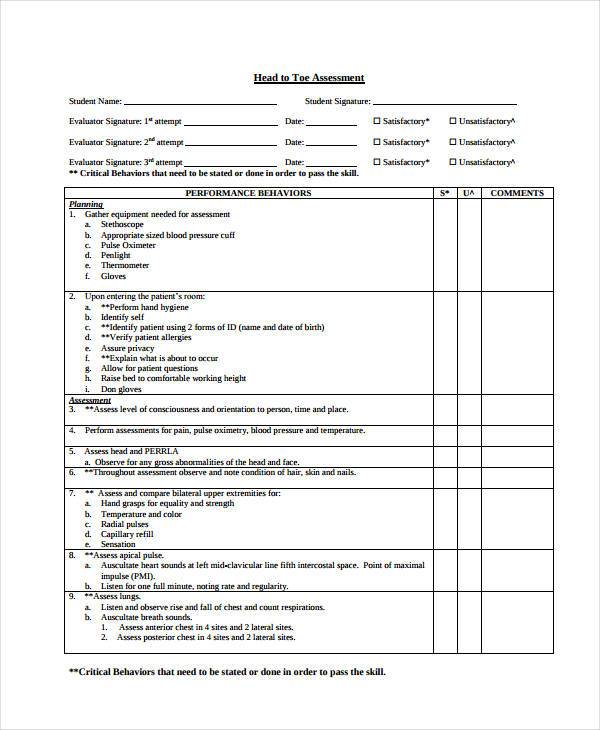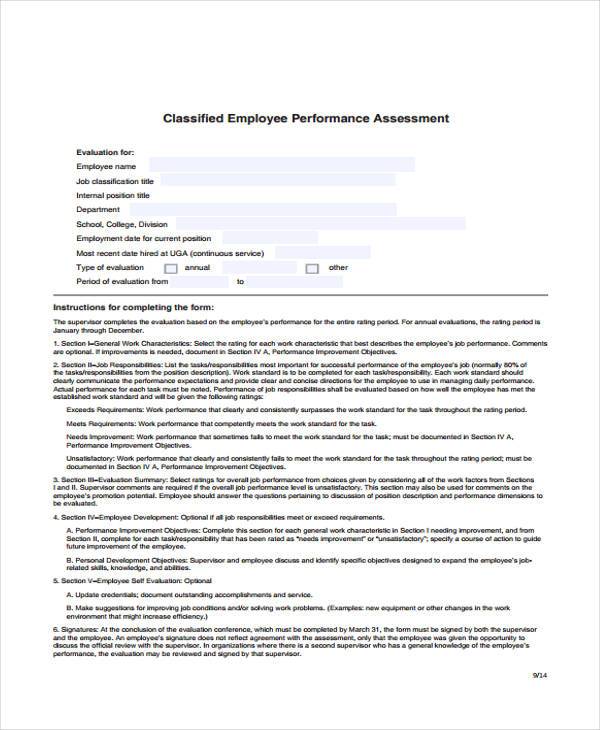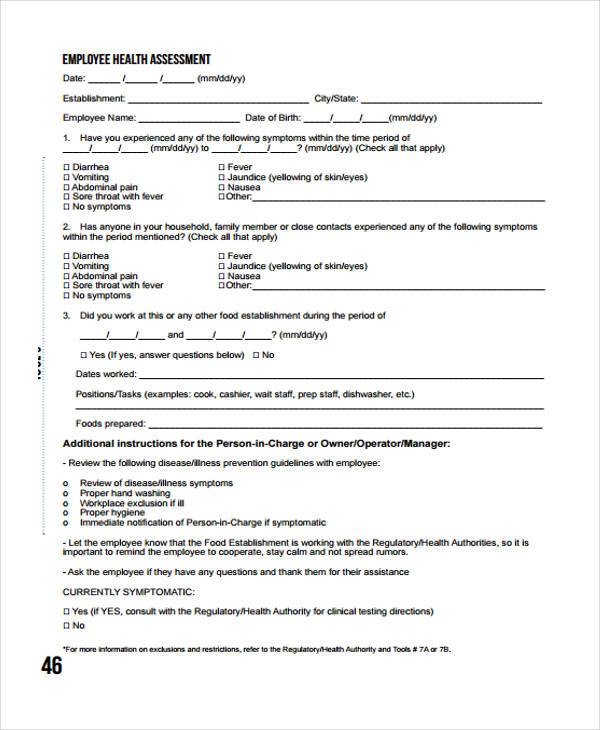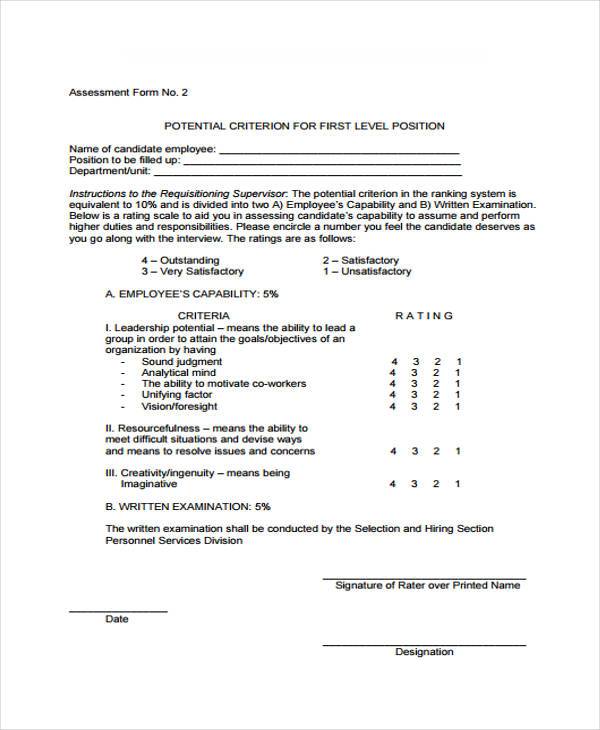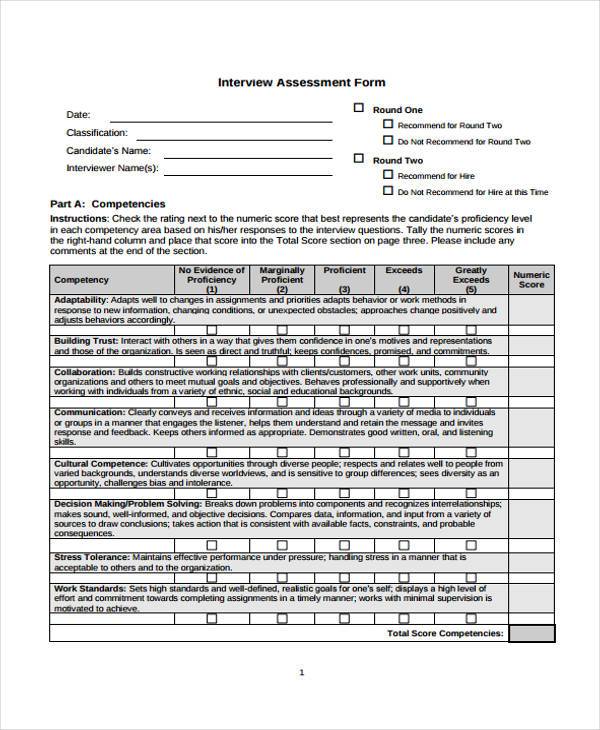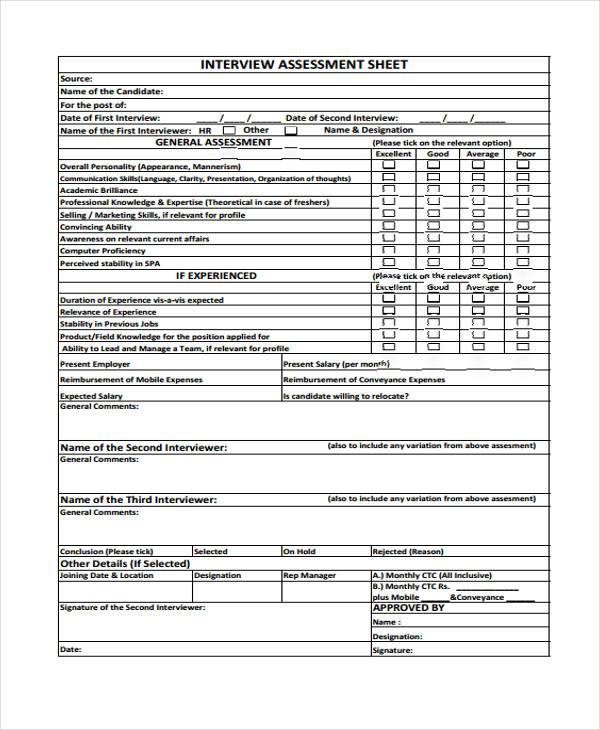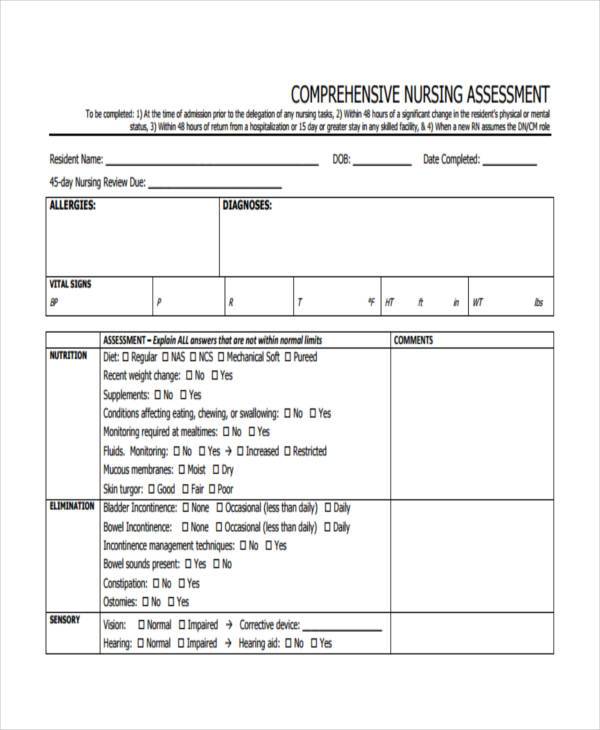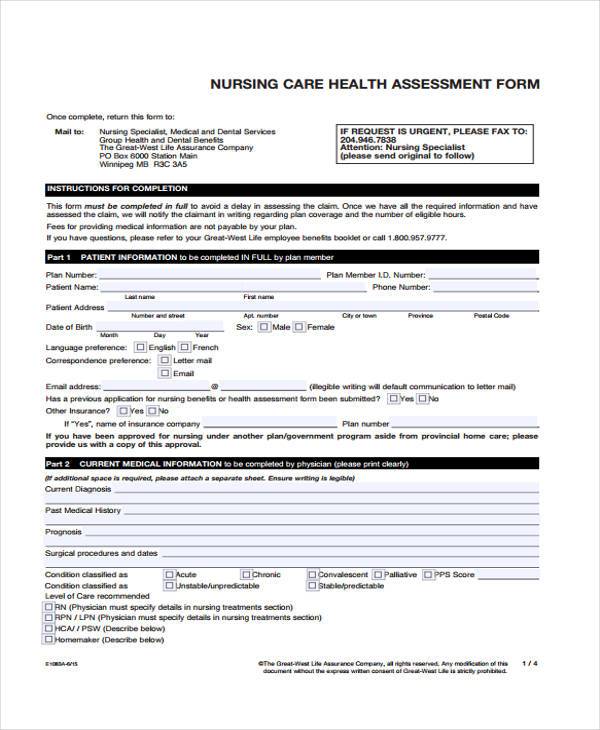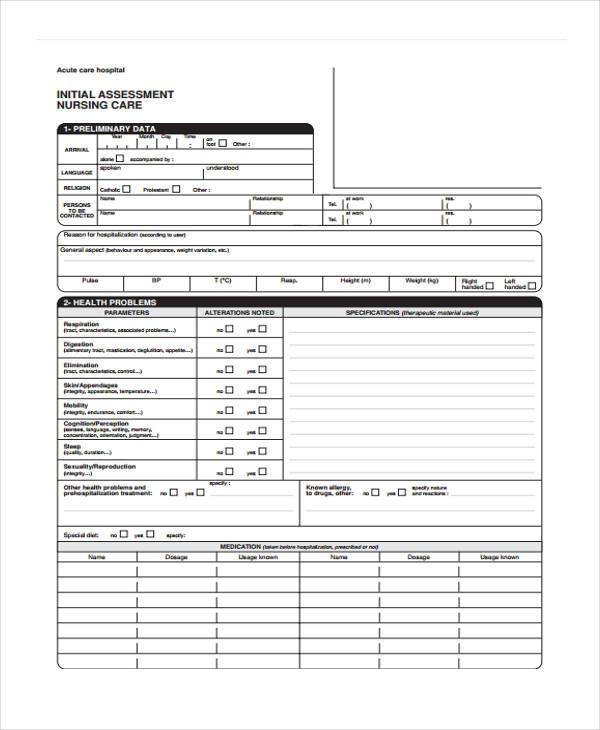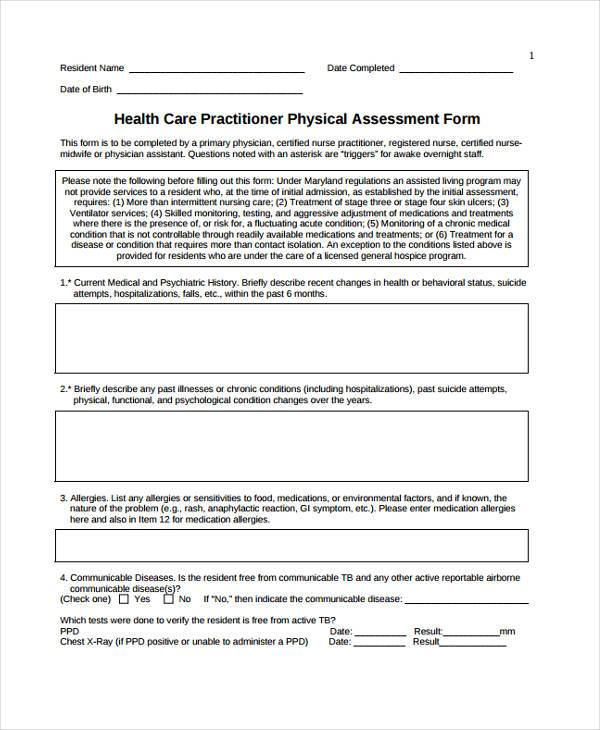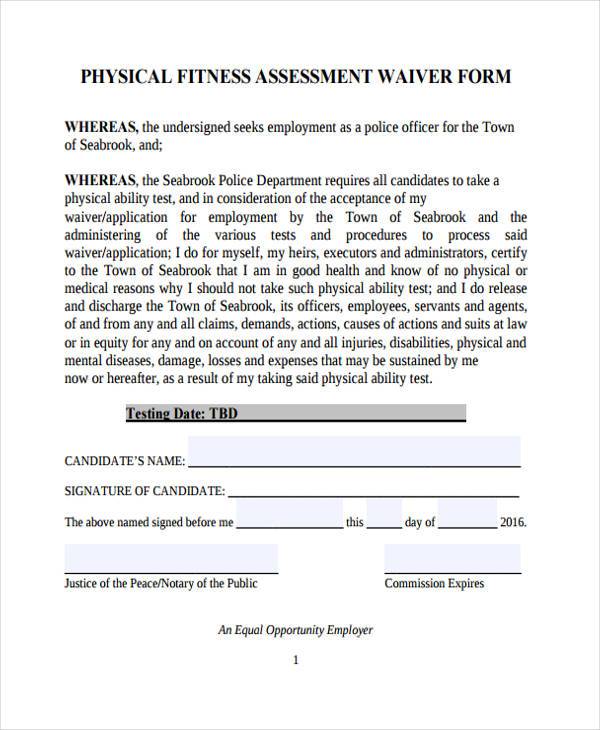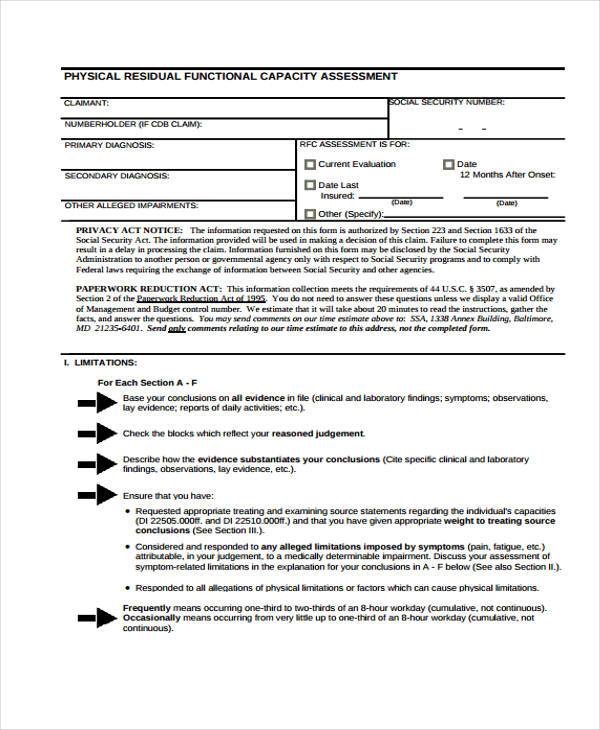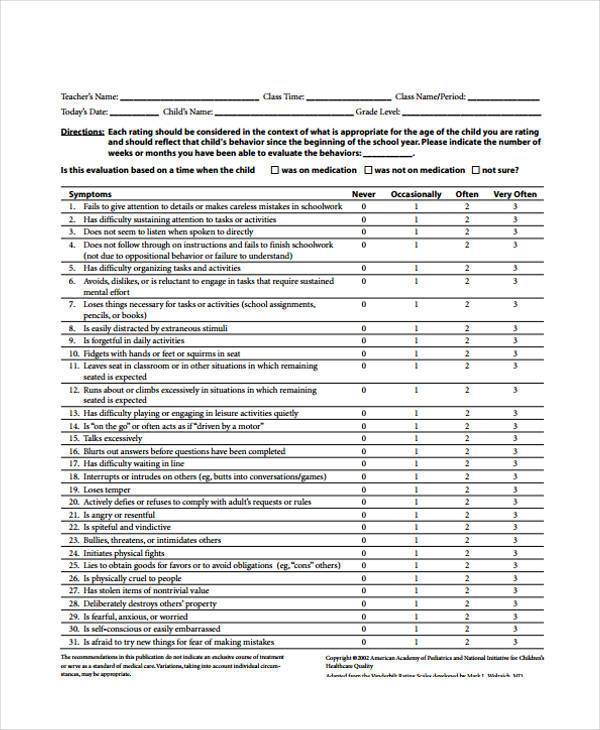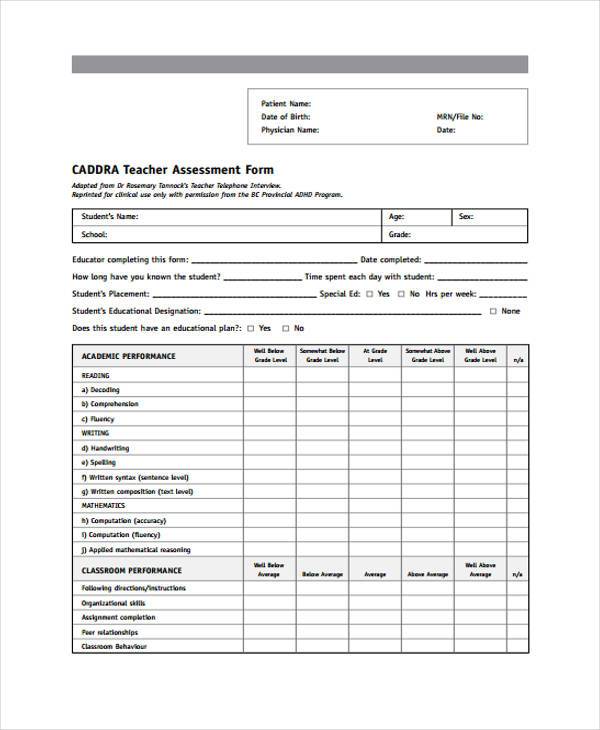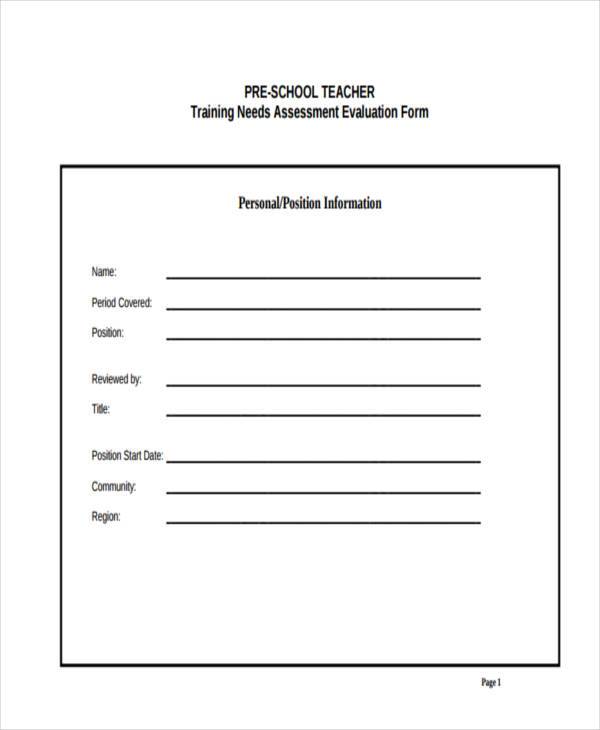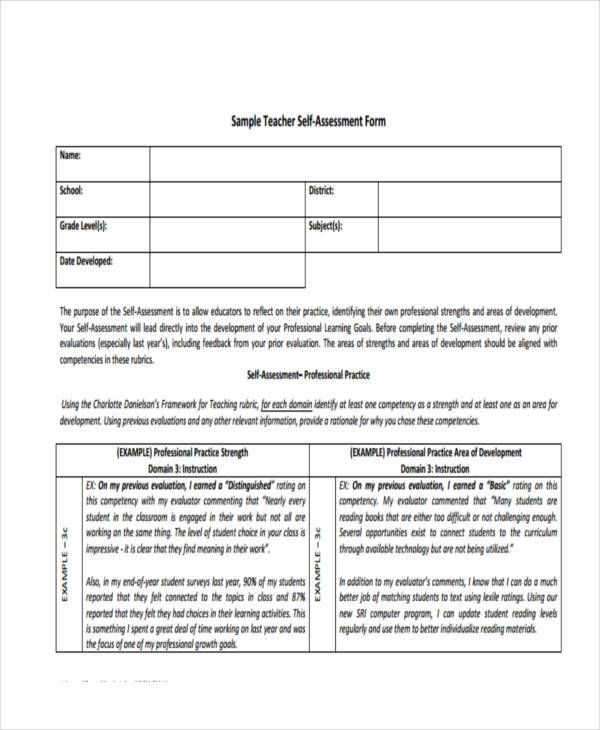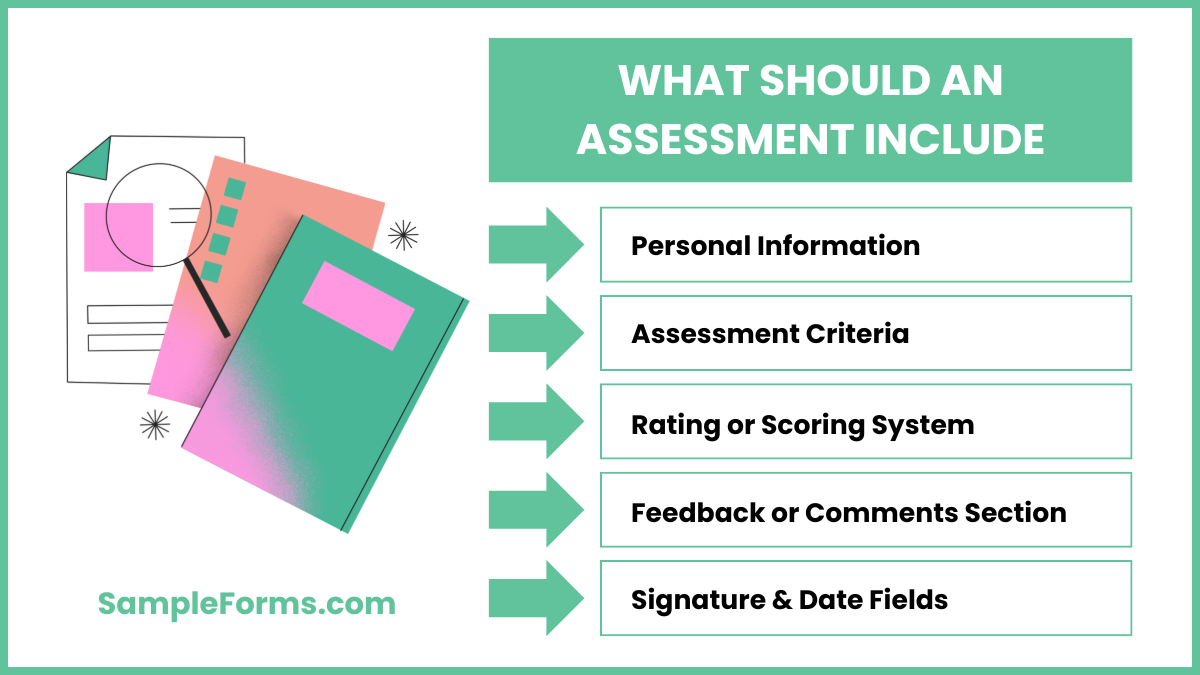An Assessment Form is a structured document used to evaluate performance, skills, or progress in various fields. Whether for employees, students, or projects, a well-designed form ensures objective and accurate assessments. A Self Assessment Form helps individuals reflect on their progress, strengths, and areas for improvement. Organizations use these forms to track performance, provide feedback, and set future goals. This guide covers different types of assessment forms, their importance, and best practices for creating effective evaluation tools. A properly formatted assessment form enhances decision-making and ensures fair, structured evaluations.
Download Assessment Form Bundle
What is Assessment Form?
An Assessment Form is a document used to measure abilities, knowledge, or performance in a structured manner. It helps organizations and individuals analyze progress, identify strengths, and highlight areas needing improvement. Assessment forms are commonly used in education, workplaces, healthcare, and project evaluations. They can be self-assessments, peer evaluations, or expert reviews, ensuring fairness and accuracy. A well-structured form improves decision-making by providing measurable insights, making assessments more reliable and effective.
Assessment Format
Assessment Title:
[Specify Assessment Area]
Conducted By:
- Name: [Assessor’s Name]
- Organization: [Specify]
- Date: [Insert Date]
Purpose & Objectives:
- To evaluate [Skills/Performance/Compliance] based on defined metrics.
- Identify areas of strength and improvement.
Assessment Criteria & Scoring:
- Criterion 1: [Description] – [Score Range]
- Criterion 2: [Description] – [Score Range]
- Criterion 3: [Description] – [Score Range]
Results & Performance Analysis:
- Strengths Identified: [Summary]
- Areas for Improvement: [Summary]
- Final Score/Outcome: [Provide]
Recommendations & Next Steps:
- [Specify Suggested Actions]
Assessor’s Validation:
Assessor Signature: ___________ Date: ___________
Assessment Form for Students
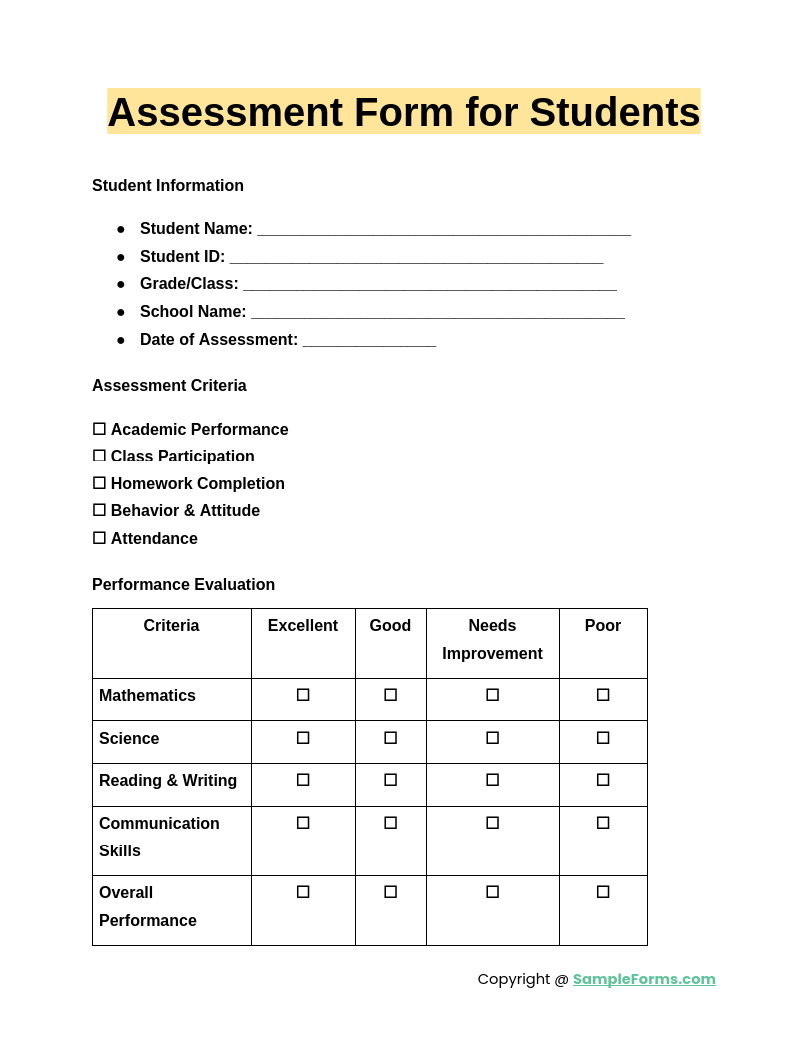
An Assessment Form for Students evaluates academic performance, participation, and learning progress. Similar to a Skills Assessment Form, it measures competencies, strengths, and areas needing improvement, helping educators tailor teaching strategies for better student success.
Assessment Form in School
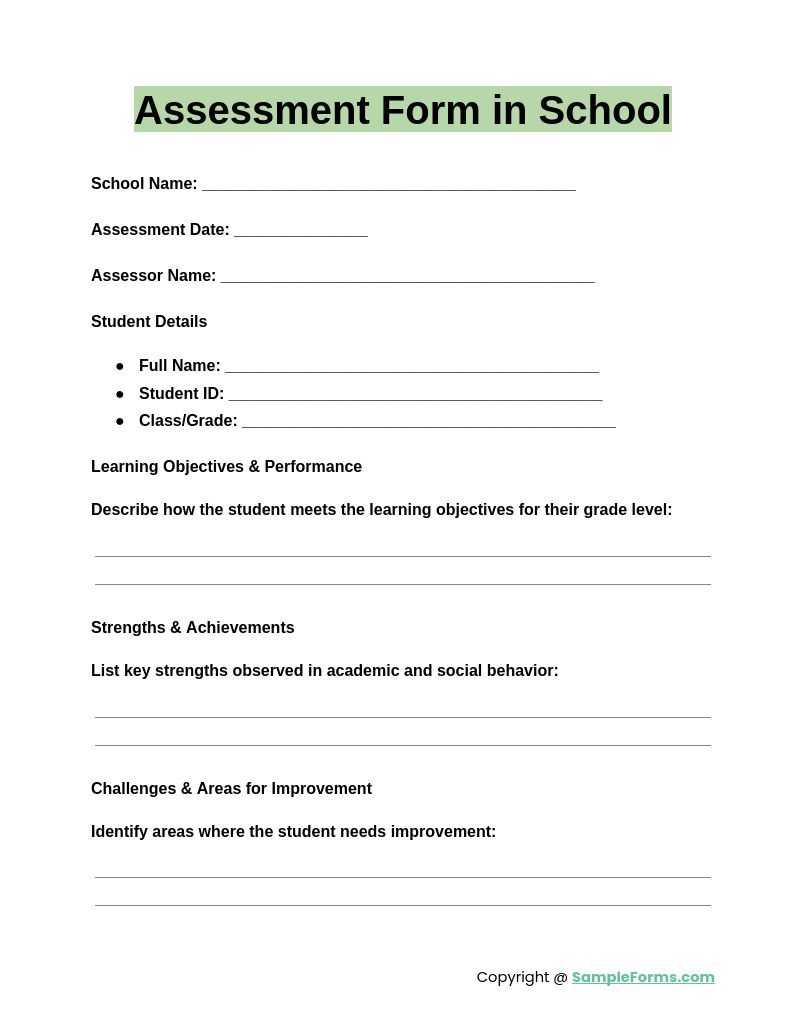
An Assessment Form in School is used to track students’ progress, behavior, and skill development. Like a Risk Assessment Form, it identifies challenges and helps educators implement strategies to enhance learning outcomes and overall student performance.
Assessment Form for Employees
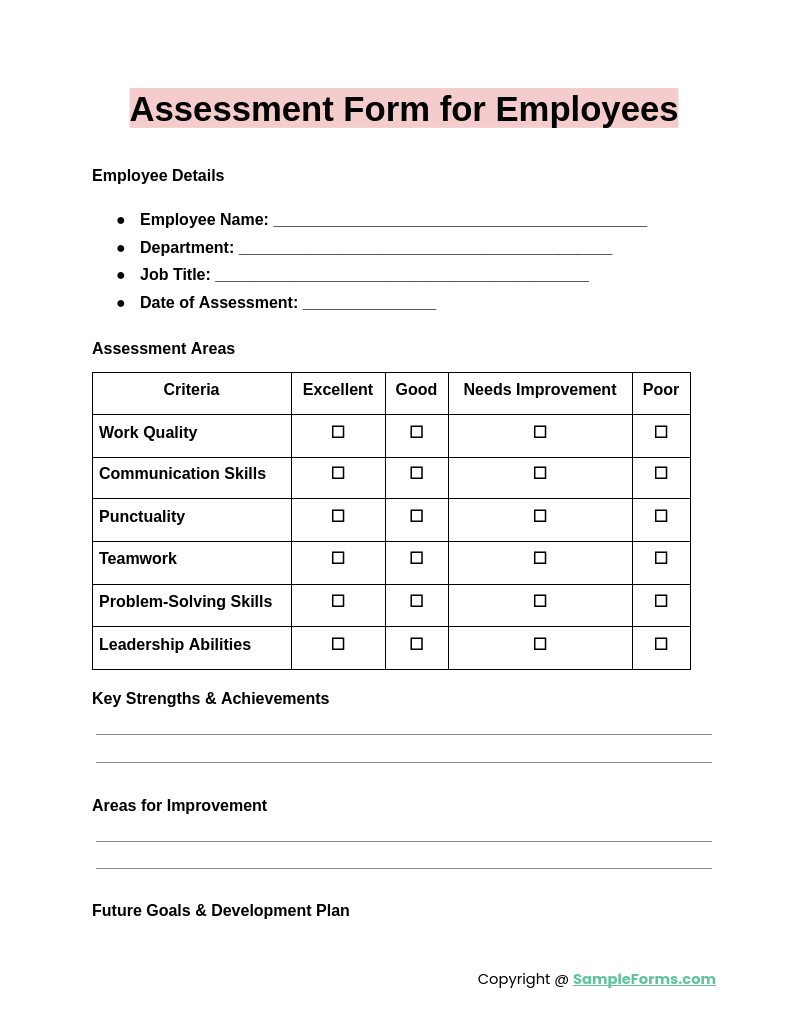
An Assessment Form for Employees reviews job performance, productivity, and workplace efficiency. Similar to an Interview Assessment Form, it evaluates professional competencies, growth potential, and areas for skill development, ensuring effective workforce management and career progression.
Assessment Form for Patient
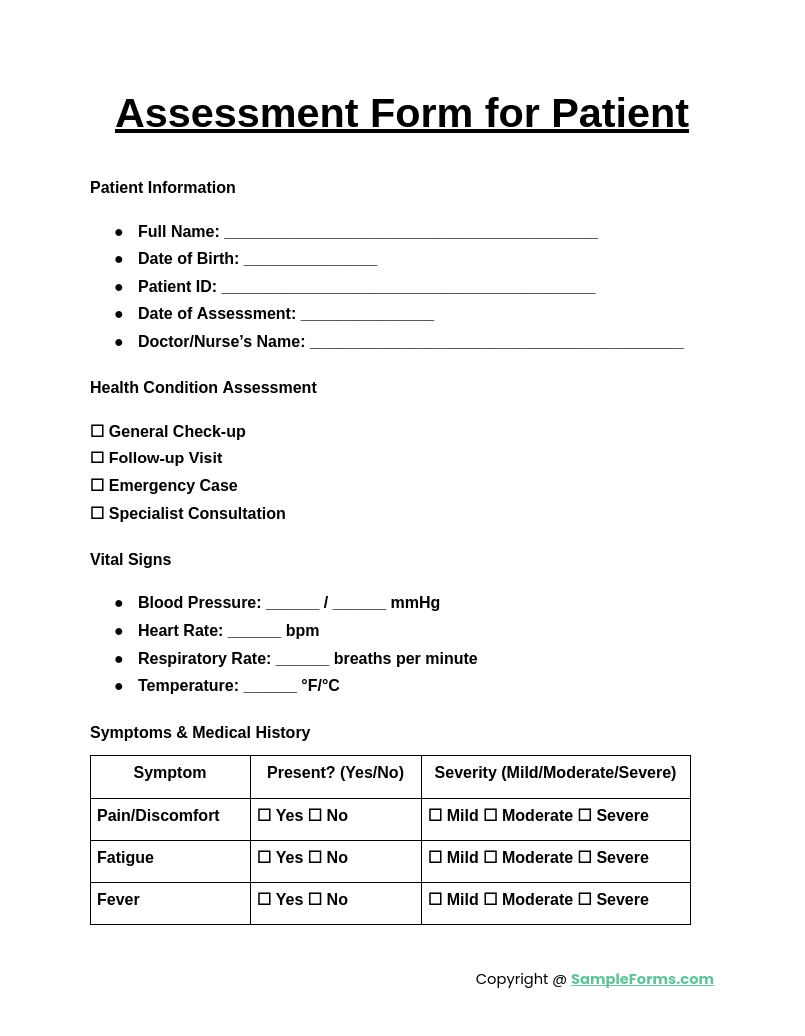
An Assessment Form for Patient documents health status, symptoms, and medical progress. Like a Physical Therapy Assessment Form, it tracks recovery, diagnoses conditions, and helps healthcare providers create personalized treatment plans for better patient care and management.
Self Assessment Forms
Student Self-Assessment Form in PDF
Employee Self-Assessment Form
Self-Assessment Questionnaire Form
Medical Self-Assessment Form
Physiotherapy Assessment Forms
General Physiotherapy Assessment Form
Physiotherapy Assessment Report Form
Health Assessment Forms
Mental Health Assessment Form
Child Health Assessment Form
Health Risk Assessment Form in PDF
Health Needs Assessment Form
Functional Behavior Assessment Forms
Functional Behavior Assessment Observation Form
Functional Behavioral Assessment Consent Form
Blank Functional Behavior Assessment Form
Preschool Functional Behavioral Assessment Form
Head to Toe Assessment Forms
Sample Assessment Form Example
Printable Head to Toe Assessment Form
Sample Head to Toe Assessment Form
Employee Assessment Forms
Classified Employee Performance Assessment Form
Employee Health Assessment Form in PDF
Employee Potential Assessment Form
Interview Assessment Forms
Sample Interview Assessment Form in PDF
Employment Interview Assessment Form
Interview Assessment Sheet Form
Nursing Assessment Forms
Sample Nursing Assessment Form
Nursing Care Health Assessment Form
Initial Nursing Assessment Form
Physical Assessment Forms
Health Care Practitioner Physical Assessment Form
Physical Fitness Assessment Waiver Form
Physical Residual Functional Capacity Assessment Form
Teacher Assessment Forms
Sample Teacher Assessment Form
Printable Teacher Assessment Form
Pre-School Teacher Training Needs Assessment Form
Teacher Self-Assessment Form in PDF
How to fill out an assessment form?
Filling out an Assessment Form correctly ensures accurate evaluations and meaningful feedback. Following a structured approach improves clarity and efficiency. Steps include:
- Read Instructions Carefully: Understand the form’s purpose, similar to a Nursing Assessment Form, ensuring all required fields are completed accurately.
- Provide Accurate Details: Enter correct personal or professional data to avoid misinterpretations or errors in the evaluation process.
- Answer All Questions Clearly: Respond thoroughly to each section, whether it includes ratings, multiple-choice, or open-ended questions.
- Review Before Submission: Double-check for errors, missing information, or unclear responses to ensure form accuracy.
- Submit to the Right Authority: Ensure the completed form reaches the correct recipient for review and further action.
What is the purpose of assessment?
Assessments measure abilities, progress, or conditions across various fields, helping in decision-making and improvement. The primary purposes include:
- Performance Evaluation: Determines competency levels, similar to a Fitness Assessment Form, tracking individual growth and skill improvement.
- Identifying Strengths & Weaknesses: Helps individuals or organizations recognize areas of excellence and areas needing development.
- Setting Goals & Action Plans: Establishes benchmarks for future progress, guiding personal, educational, or professional growth.
- Compliance & Standardization: Ensures adherence to guidelines, policies, or industry standards.
- Enhancing Decision-Making: Provides data-driven insights to improve learning, healthcare, or workplace efficiency.
How do I prepare for an assessment?
Proper preparation enhances performance and ensures effective evaluation. Preparing for an Assessment Form involves:
- Understand the Criteria: Learn what will be assessed, similar to a Psychosocial Assessment Form, which evaluates behavioral and emotional factors.
- Review Previous Assessments: Analyze past results to identify strengths and areas needing improvement.
- Gather Relevant Information: Collect necessary documents, records, or references to support the assessment process.
- Practice & Self-Evaluate: If applicable, take practice tests or conduct self-reviews to boost confidence and readiness.
- Maintain a Positive Mindset: Approach the assessment calmly, ensuring focus and accuracy in responses.
What should an assessment include?
A well-structured Assessment Form ensures comprehensive evaluation, covering all necessary aspects. Essential elements include:
- Personal Information: Basic details like name, date, and identification, similar to a Nutrition Assessment Form in healthcare.
- Assessment Criteria: Clearly defined parameters that align with the purpose of the evaluation.
- Rating or Scoring System: A standardized method to quantify results, making evaluation objective.
- Feedback or Comments Section: Space for additional observations, recommendations, or clarifications.
- Signature & Date Fields: Ensures authenticity and accountability of the provided information.
Why do you need an assessment?
Assessments are crucial for measuring progress, identifying gaps, and improving efficiency. Their importance includes:
- Health & Well-Being: Similar to a Mental Health Assessment Form, it identifies physical or psychological conditions requiring intervention.
- Educational Development: Helps educators track student progress and tailor learning strategies.
- Workplace Productivity: Evaluates employee performance, ensuring continuous improvement and goal alignment.
- Behavioral Analysis: Similar to a Functional Behavior Assessment Form, it aids in understanding behavioral patterns and necessary adjustments.
- Decision-Making & Planning: Ensures informed choices in education, healthcare, or business strategies.
What is the purpose of personal assessment?
A personal assessment helps individuals evaluate strengths, weaknesses, and skills for self-improvement. Similar to a Hazard Assessment Form, it identifies areas needing development and sets goals for personal or professional growth.
What is a confidential assessment form?
A confidential assessment form protects sensitive information during evaluations. Like a Fall Risk Assessment Form, it ensures privacy while assessing key aspects such as employee performance, patient conditions, or security risks within an organization.
What is individual assessment form?
An individual assessment form evaluates personal capabilities, progress, and development. Similar to a Driver Assessment Form, it measures skills and competencies to improve performance in education, employment, or healthcare settings.
What is an example of an assessment?
An example of an assessment is a skills evaluation for job applicants. Similar to a Capacity Assessment Form, it determines qualifications, strengths, and suitability for a specific role, ensuring informed decision-making.
What is the first thing to do in assessment?
The first step in an assessment is defining its purpose. Like a Client Assessment Form, setting clear objectives ensures accurate evaluations and meaningful insights into performance, health, or competency levels.
What is a notice of assessment in the US?
A notice of assessment is an official tax document detailing income and tax liabilities. Similar to a Family Assessment Form, it provides a structured review of financial obligations and any applicable refunds or payments.
How do I write a self-assessment form?
Writing a self-assessment form involves detailing strengths, weaknesses, and achievements. Similar to a Community Assessment Form, it requires objective reflection and documentation of progress to set realistic goals for improvement.
Is assessment good or bad?
Assessment is beneficial when used for growth and improvement. Similar to an Army Risk Assessment Form, it identifies potential risks and opportunities, ensuring structured decision-making and progress tracking.
What is resident assessment form?
A resident assessment form evaluates a person’s health, behavior, and needs in a care facility. Similar to a Student Self Assessment Form, it helps track progress and ensure personalized support for individuals.
What is a clinical assessment form?
A clinical assessment form records patient symptoms, medical history, and treatment plans. Like a Job Assessment Form, it systematically evaluates conditions to ensure accurate diagnosis and effective healthcare management.
A Supplier Assessment Form ensures organizations evaluate vendors before engaging in business relationships. Similarly, an Assessment Form provides structured evaluations in various sectors, improving efficiency and decision-making. Whether assessing employee performance, student progress, or project outcomes, a properly designed form ensures accuracy and objectivity. This guide offers templates, best practices, and examples to create effective assessment tools. By implementing structured assessment forms, businesses, educators, and professionals can achieve data-driven insights that lead to better performance and informed decision-making.
Related Posts
-
Enquiry Form
-
FREE 5+ Recruiter Performance Review Forms in PDF | MS Word
-
Job Safety Observation Form
-
FREE 4+ Hazard Observation Forms in PDF
-
FREE 5+ Coach Observation Forms in PDF | MS Word
-
FREE 4+ Child Care Observation Forms in MS Word | PDF
-
FREE 4+ Child Observation Forms in PDF | MS Word
-
Preschool Observation Form
-
Student Observation Form
-
Peer Observation Form
-
Lesson Observation Form
-
Content Retention Through Assessment Form [ How to, Importance, Tips ]
-
The Importance of Risk Assessment and Safety Statement [ What Is, How to Conduct ]
-
Risk Assessments And Safety Statements Guidelines [ What Is, Process ]
-
Choosing Careers Through Self Assessment [ What Is, Ways ]
